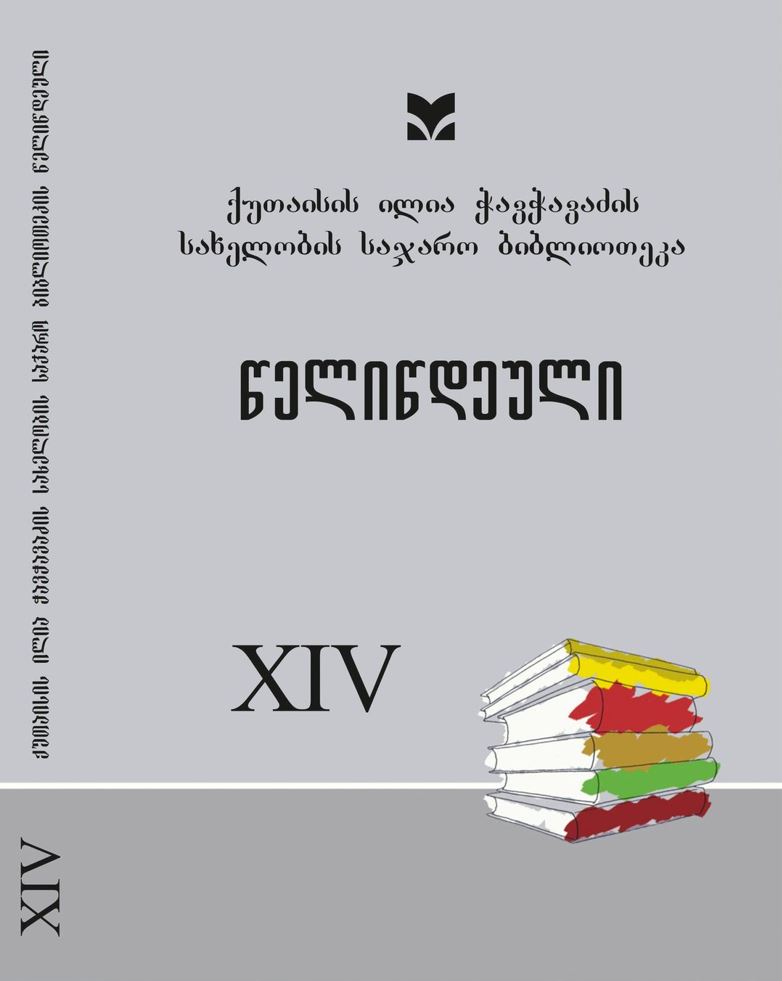Dimitri Kipiani's Confidential Report on the Life and Legacy of Mikheil Sharvashidze, the Last Prince of Abkhazia
DOI:
https://doi.org/10.61491/yk.14.2022.6999Keywords:
Establishment of Russian rule in Abkhazia, Principality of Abkhazia, Dimitri Kifiani, Mikheil SharvashidzeAbstract
Dimitri Kipiani’s secret report, authored on October 12, 1855, regarding Mikheil Sharvashidze, the last Prince of Abkhazia, remains highly relevant in the context of Georgia’s history, particularly concerning Rus-sia’s occupation of the country. This report presents significant historical events, their analysis, and evaluation by the speaker, Dimitri Kipiani, providing intriguing insights that deserve careful consideration. The objective of this research is to revive forgotten or lesser-known aspects of Georgian history, introduce remarkable his-torical figures to readers, and shed light on their contributions.
During the Crimean War in 1853-1856, Abkhazia was occupied by the Turkish army, and with the aid of Prince Mikheil Sharvashidze, the Russian army successfully evacuated without any casualties. Subsequent-ly, in May 1854, Mikheil Sharvashidze, along with his wife and children, sought refuge with his father-inlaw’s family in Samegrelo, only to return to still-occupied Abkhazia about a year later. This raised suspicions within the Russian government, prompting the dispatch of a secret mission to Western Georgia in September 1855, led by civilian adviser Dimitri Kipiani. Kipiani traveled through Imereti, Guria, and Samegrelo, gath-ering valuable information and opinions from individuals closely associated with Mikheil Sharvashidze, ulti-mately submitting his comprehensive report to the government.
Dimitri Kipiani’s strong sympathies and a fervent desire to exonerate Mikheil Sharvashidze are evident in the document, perceptible even to Crown Prince Nikoloz Muravyov, who expressed skepticism by marking certain words, phrases, sentences, and paragraphs in red. Nevertheless, Kipiani’s report played a significant role in securing the acquittal of the Prince of Abkhazia in St. Petersburg, despite the planned abolition of the Abkhazian principality in 1864. Not merely an official record, Kipiani’s report also demonstrates elements of fiction, as he skillfully narrates contemporary events with artistic flair, capturing the interest of readers through vivid portrayals of historical personalities such as Mikheil Sharvashidze, Alexandra Dadiani-Sharvashidze, Giorgi Dadiani, Ivane Mukhranbatoni, Ekaterine Chavchavadze-Dadiani, and Omer-Pasha. Furthermore, the report serves as an invaluable historical source, offering intriguing insights into ongoing political events in Georgia and the Russian-Turkish war on a broader scale.




